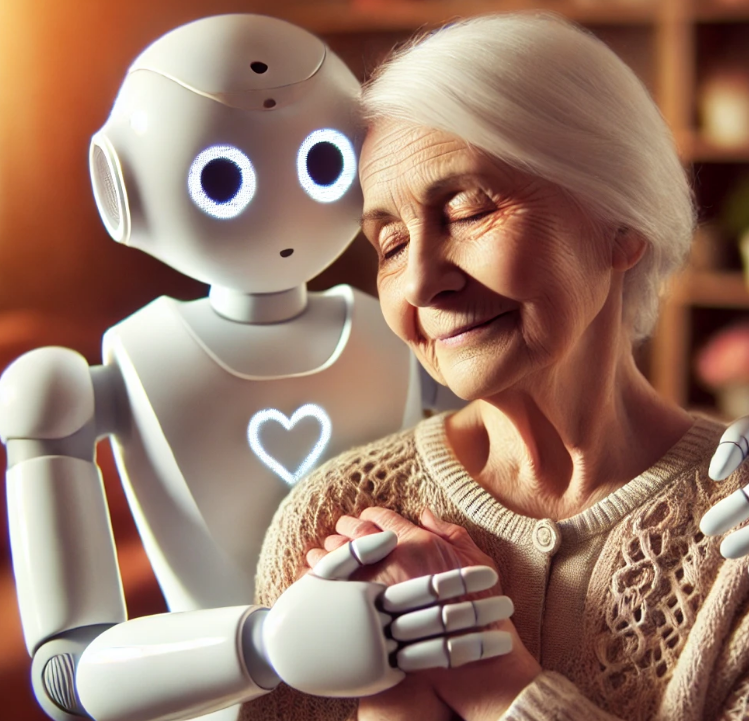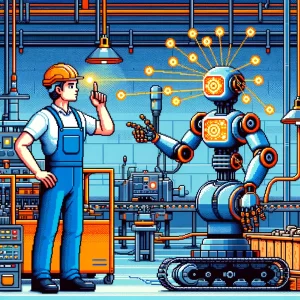
Can a Robot’s Touch Make You Happier? Science Says a Resounding… Maybe!
Picture this: You’re sitting on your couch after a long day, and suddenly, a small, baby-like robot scoots over and gently pats your hand. Weird? Absolutely. Comforting? Well, that’s exactly what scientists set out to explore!
Social robots are becoming more than just sci-fi dreams—they’re stepping into real-life roles as companions, caregivers, and even emotional support buddies. But here’s the big question: Can a robot’s touch make us feel something real? A recent study tackled this head-on, investigating whether a robot’s gentle touch could spark positive emotions and even crank up the “aww” factor (also known as kawaii in Japanese culture).
When Robots Reach Out, Do We Feel the Love?
We know human touch is powerful. It lowers stress, strengthens bonds, and even boosts our immune system. But what about robot touch? Researchers in Japan wanted to see if a baby-like social robot could evoke similar emotional responses in adults and seniors just by reaching out and making contact.
The experiment involved a small, baby-faced robot designed to interact with people using voice and physical touch. Participants—both younger adults (21-49) and seniors (65-79)—were split into different scenarios. Sometimes, the robot touched them while expressing emotions (either happy or angry), and other times, it just stayed hands-off.
So, did a tiny robot hand on their skin make a difference? The short answer: Yes… but with a twist.
The Results: A Touching Discovery
Here’s where it gets interesting:
- Feeling the Love: Across all age groups, when the robot touched participants, their emotional responses showed an increase in positive feelings (valence in science-speak). In simple terms, robot-initiated touch made people feel happier—no matter if the bot was giggling or grumbling.
- Not-So-Touchy Seniors: While younger adults also felt more excited (arousal) and rated the robot as cuter when it touched them, seniors didn’t show the same reaction. They felt good about the touch but didn’t necessarily find it more energizing or “aww”-inducing.
- Why So Different? Scientists think this comes down to how our brains process emotions as we age. Seniors generally perceive emotional cues differently than younger folks, focusing more on overall positivity rather than excitement. Plus, they may already find baby-like robots super cute without needing extra interaction.
The Big Picture: What Does This Mean for the Future of Robots?
These findings could have major implications for designing social robots, especially for elder care. As societies worldwide face aging populations, tech-driven solutions like companion robots could help provide emotional support, reduce loneliness, and even assist caregivers.
Imagine a future where your grandmother has a little robotic friend that offers comfort with a soft pat or holds her hand when she’s feeling down. Or where hospitals use gentle-touch robots to help calm anxious patients. This isn’t science fiction—it’s a real possibility.
But, there’s still work to be done. Researchers need to fine-tune robot interactions to ensure they truly benefit different age groups. Touch may not be a one-size-fits-all solution—seniors, for example, might need more personalized interactions to feel the full emotional impact.
What’s Next? Your Thoughts!
This study opens up some wild possibilities. Would you be okay with a robot patting your hand when you’re stressed? Could these bots ever become emotional companions like pets or even humans?
Now, we want to hear from you!
- How do you feel about robots offering emotional support through touch?
- Do you think seniors would benefit from social robots in everyday life?
- What’s the coolest science fact you’ve learned recently?
Drop your thoughts in the comments or share this blog with your most tech-curious friend. The future of human-robot interactions is unfolding right before us—let’s explore it together!
Unlock Science Secrets:
Science is under threat, and your knowledge is your power. This Week in Science offers groundbreaking insights, revolutionary research, and transformative discoveries to arm you with the facts in an increasingly polarized world. Our free weekly newsletter is perfect for educators and science lovers alike. Don’t wait—subscribe now to deepen your understanding and stand with science. If you liked this blog, please share it—your referrals help us keep science accessible to everyone.



